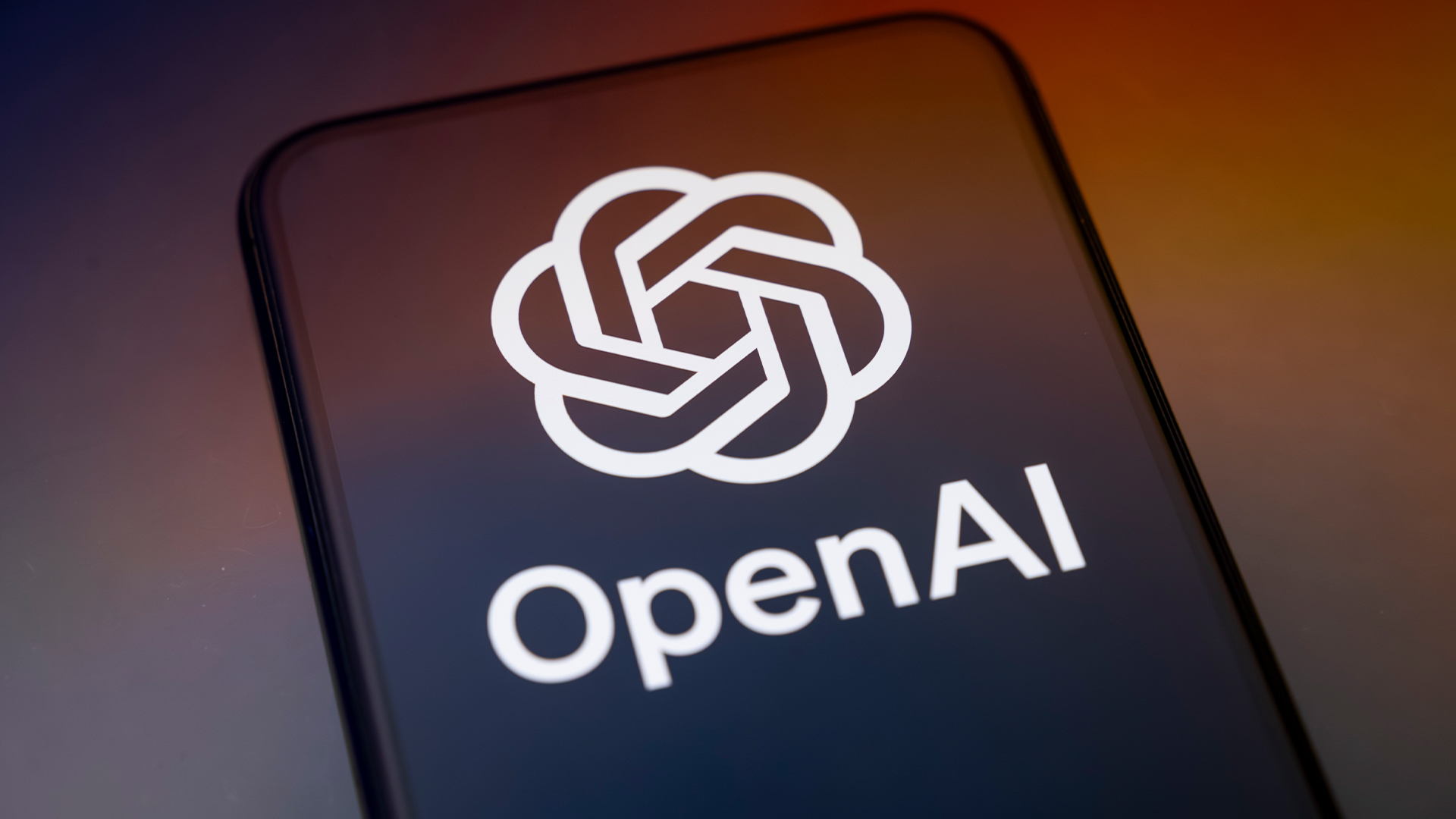ChatGPT could be facing some serious competition: Amazon is reportedly working on a new AI tool, ‘Metis’, to challenge the chatbot’s dominance
Amazon could be preparing to mount a serious challenge on ChatGPT’s dominance with the launch of a new chatbot service


Sign up today and you will receive a free copy of our Future Focus 2025 report - the leading guidance on AI, cybersecurity and other IT challenges as per 700+ senior executives
You are now subscribed
Your newsletter sign-up was successful
Amazon is reportedly working on development of a new AI tool aimed at directly competing with ChatGPT as the tech giant looks to compete with the popular chatbot.
According to reports from Business Insider, the internal project, codenamed ‘Metis’, is designed to be accessible for users via web browser.
Metis will work in a similar fashion to ChatGPT, providing users text and image-based answers in response to user queries. The chatbot will also reportedly provide links within answers to give users access to source materials used when generating a response, and even suggest follow-up queries.
Sources told the publication the chatbot will be powered by Amazon’s internal AI model, dubbed ‘Olympus’, which is also believed to be in development. Reports on Olympus emerged late last year, but as of yet no concrete details have been teased by the firm.
Development of the chatbot is being led by Amazon’s artificial general intelligence (AGI) team, which is also working on the Olympus model, and the launch of the service could come in September to coincide with Amazon’s Alexa event.
Amazon eyes RAG capabilities with Metis chatbot launch
A key differentiator for Metis, sources suggested, is that retrieval augmented generation (RAG) will play a big role in optimizing how the chatbot produces responses.
RAG has become the latest industry buzzword amidst a flurry of AI activity over the last 18 months. This allows AI models to draw upon larger knowledge repositories such as organization-specific information, alongside user input, to inform their responses.
Sign up today and you will receive a free copy of our Future Focus 2025 report - the leading guidance on AI, cybersecurity and other IT challenges as per 700+ senior executives
All told, this provides more relevant results for user queries. Metis will be no different, and will be able to source information beyond the original data used to train its supporting model, thereby providing more up-to-date responses.
Sources close to the matter told Business Insider the chatbot will be able to share the latest stock prices in real-time, for example.
RELATED WHITEPAPER

Amazon plans appear to also point toward Metis acting as an ‘AI agent’. These custom chatbots essentially automate and perform tasks on behalf of the user, and are built using existing, internal data. Sources told BI that some use-cases included booking flights, or turning on lights, pointing toward close integration with Alexa.
Alongside RAG, AI agents have emerged as a major enterprise focus so far in 2024.
Google Cloud launched its own AI Agents service for Vertex AI at Google Cloud Next 2024. Microsoft-backed OpenAI also launched its marketplace for AI agents which allows users to create custom GPTs in a move earlier this year.
Amazon is entering a very cluttered market

Rory Bathgate is Features and Multimedia Editor at ITPro, overseeing all in-depth content and case studies. He can also be found co-hosting the ITPro Podcast with Jane McCallion, swapping a keyboard for a microphone to discuss the latest learnings with thought leaders from across the tech sector.
To compete with the likes of Microsoft and Google, Amazon faces a challenge on several fronts.
Breaking through and capturing customers in this environment will require Metis to deliver serious results. With Metis reportedly powered by Olympus, the tool carries potential to not only produce powerful outputs but also show off Amazon’s own in-house development capabilities.
That said, it’s a hard task. In the eight months since rumors about Olympus first surfaced, the AI space has moved on considerably. Gemini 1.5 Pro and GPT-4o continue to push the limits of large language models (LLMs) and unless Olympus is proven to outperform these competitors by sizable margins it could fail to catch the attention of would-be customers.
Rising capabilities of open source models like Meta’s Llama 3, which cost nothing and are already available on AWS, Azure, and Google Cloud, could also prove a hindrance here. Simple benchmark scores are no longer enough in a world where completely free models can go toe-to-toe with those made by the best AI developers.
There’s also the issue of convenience. It’s likely that as AI becomes more commonplace, businesses will choose their AI assistant that requires the least upheaval of their existing stack and as little staff retraining as possible. For example, an organization that’s already heavily invested in the Microsoft ecosystem could easily adopt Copilot versus another AI solution.
All of this said, it’s in its RAG-based approach that Metis could make the most difference. Still considered a novel technique, RAG provides assurances of accuracy that can put fears over hallucinations to bed and make AI adoption much more feasible for enterprises.
If Amazon can sell this message – ‘Metis is more reliable than the next best tool’ – it could seize the corner of the market that the company has thus far failed to make gains within.

Ross Kelly is ITPro's News & Analysis Editor, responsible for leading the brand's news output and in-depth reporting on the latest stories from across the business technology landscape. Ross was previously a Staff Writer, during which time he developed a keen interest in cyber security, business leadership, and emerging technologies.
He graduated from Edinburgh Napier University in 2016 with a BA (Hons) in Journalism, and joined ITPro in 2022 after four years working in technology conference research.
For news pitches, you can contact Ross at ross.kelly@futurenet.com, or on Twitter and LinkedIn.
-
 Researchers call on password managers to beef up defenses
Researchers call on password managers to beef up defensesNews Analysts at ETH Zurich called for cryptographic standard improvements after a host of password managers were found lacking
-
 Is there a future for XR devices in business?
Is there a future for XR devices in business?In-depth From training to operations, lighter hardware and AI promise real ROI for XR – but only if businesses learn from past failures
-
 ‘The fastest adoption of any model in our history’: Sundar Pichai hails AI gains as Google Cloud growth, Gemini popularity surges
‘The fastest adoption of any model in our history’: Sundar Pichai hails AI gains as Google Cloud growth, Gemini popularity surgesNews The company’s cloud unit beat Wall Street expectations as it continues to play a key role in driving AI adoption
-
 OpenAI's Codex app is now available on macOS – and it’s free for some ChatGPT users for a limited time
OpenAI's Codex app is now available on macOS – and it’s free for some ChatGPT users for a limited timeNews OpenAI has rolled out the macOS app to help developers make more use of Codex in their work
-
 Amazon’s rumored OpenAI investment points to a “lack of confidence” in Nova model range
Amazon’s rumored OpenAI investment points to a “lack of confidence” in Nova model rangeNews The hyperscaler is among a number of firms targeting investment in the company
-
 OpenAI admits 'losing access to GPT‑4o will feel frustrating' for users – the company is pushing ahead with retirement plans anway
OpenAI admits 'losing access to GPT‑4o will feel frustrating' for users – the company is pushing ahead with retirement plans anwayNews OpenAI has confirmed plans to retire its popular GPT-4o model in February, citing increased uptake of its newer GPT-5 model range.
-
 ‘In the model race, it still trails’: Meta’s huge AI spending plans show it’s struggling to keep pace with OpenAI and Google – Mark Zuckerberg thinks the launch of agents that ‘really work’ will be the key
‘In the model race, it still trails’: Meta’s huge AI spending plans show it’s struggling to keep pace with OpenAI and Google – Mark Zuckerberg thinks the launch of agents that ‘really work’ will be the keyNews Meta CEO Mark Zuckerberg promises new models this year "will be good" as the tech giant looks to catch up in the AI race
-
 If Satya Nadella wants us to take AI seriously, let’s forget about mass adoption and start with a return on investment for those already using it
If Satya Nadella wants us to take AI seriously, let’s forget about mass adoption and start with a return on investment for those already using itOpinion The Microsoft chief said there’s a risk public sentiment might sour unless adoption is distributed more evenly
-
 Satya Nadella says a 'telltale sign' of an AI bubble is if it only benefits tech companies – but the technology is now having a huge impact in a range of industries
Satya Nadella says a 'telltale sign' of an AI bubble is if it only benefits tech companies – but the technology is now having a huge impact in a range of industriesNews Microsoft CEO Satya Nadella appears confident that the AI market isn’t in the midst of a bubble, but warned widespread adoption outside of the technology industry will be key to calming concerns.
-
 DeepSeek rocked Silicon Valley in January 2025 – one year on it looks set to shake things up again with a powerful new model release
DeepSeek rocked Silicon Valley in January 2025 – one year on it looks set to shake things up again with a powerful new model releaseAnalysis The Chinese AI company sent Silicon Valley into meltdown last year and it could rock the boat again with an upcoming model